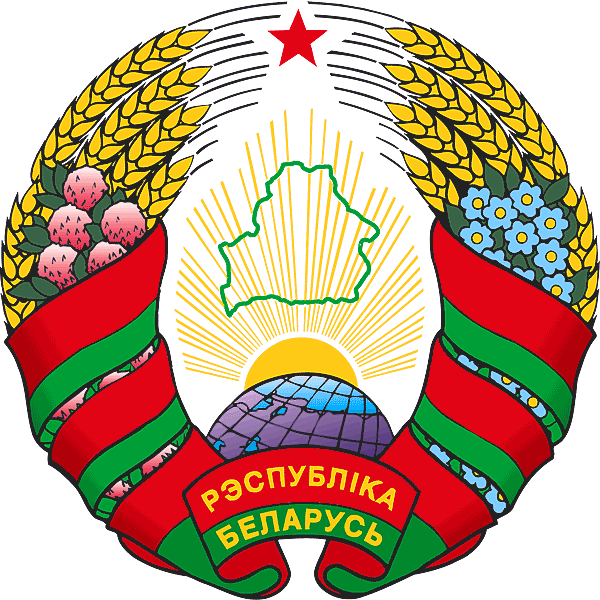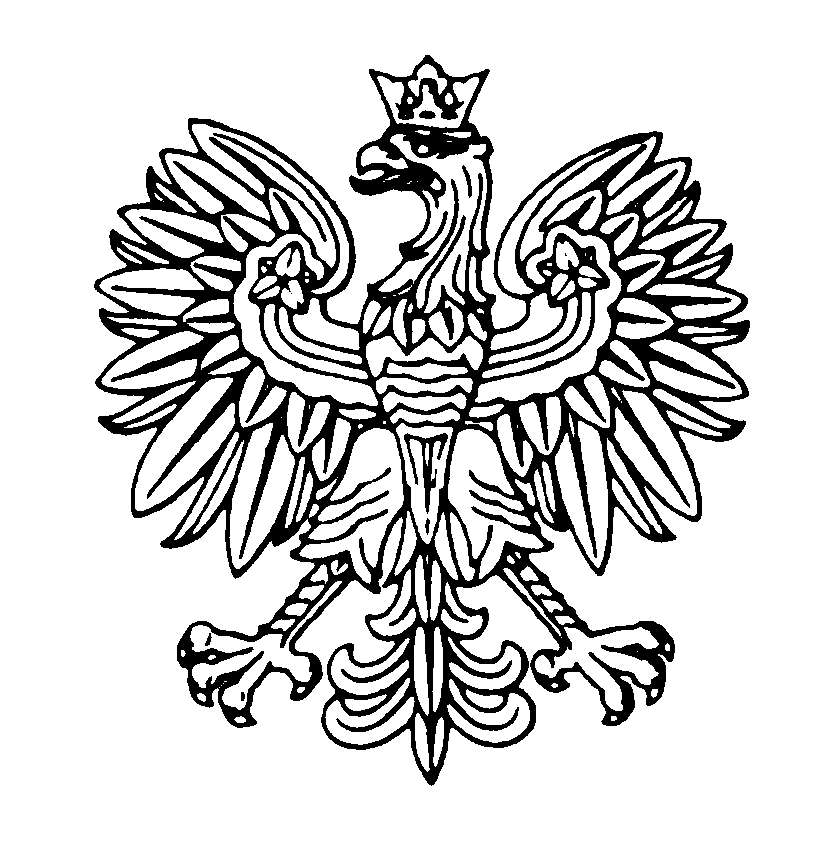EUROPEAN PROGRAMME ON THE ISLE OF KNOWLEDGE ISLAND OF
0 EN EUROPEAN ECONOMIC AND SOCIAL COMMITTEE29 THE SCOPE FOR ACTION OF EUROPEAN PARLIAMENT
3 EUROPEAN ECONOMIC AND SOCIAL COMMITTEE SPEAKING
Е ВРОПЕЙСКИЙ ПРОЕКТ НПМ COUNCIL OF EUROPE EUROPEAN
EUROPEAN COURT OF HUMAN RIGHTS JUDGMENTS ON THE
EUROPEAN CURRICULUM VITAE FORMAT PERSONAL INFORMATION IEVA GRUNDSTEINE
Upoznati s politikom, zahtjevima i očekivanjima Europske unije (Europske komisije) u odnosu na Republiku Hrvatsku u njenom putu u punopravno članstvo
![]()

![]()
![]()

European Programme on the Isle of Knowledge
Island of Koločep, Dubrovnik, 19 October 2008

The Vinodol Code, 1288
(The oldest regulation in the Croatian language)
WORKSHOP #8: SELF-GOVERNMENT
Advised (via video interview with Chief Negotiator Mr. Vladimir Drobnjak) on the negotiation process, the work carried out thus far, the challenges and obstacles that stand ahead of us as a country and a society, on our road to successful completion of negotiations by the end of 2009, and hopeful accession to the European Union in 2011;
Believing that units of local and regional self-government represent not only the foundation of state and social organization and the basis of a democratic system, but are also the basis of an overall social life and the feeling of patriotic belonging, as well as every man's and every citizen's right to a home country;
Convinced that the right of citizens to participate in public affairs' management represents one of fundamental democratic principles common amongst all member states of the European Union and the Council of Europe;
Certain that building of responsible, expert and friendly public administration starts and ends with the relationship between the citizen and the administration of his/her town, municipality, county and state;
Aware of the fact that local and regional self-government development represents in all European countries an important contribution to the development of Europe founded upon principles of democracy and decentralization of power;
Discussing the differences between normative (formal) and actual authorizations, obligations, duties and possibilities (financial and expert) of Croatian towns, municipalities and counties;
Thinking about the seriousness of the global financial and economic crisis that could make budgetary and overall economic situation in our country more difficult, especially in its poorest cities, municipalities and counties;
Expressing the hope that the system of direct election of city mayors, municipality mayors, county prefects and representative bodies of local and regional self-government will contribute to the improvement of democratic processes and to the quality of local and county self-government;
WE, participants in the «European Union for You» workshop dedicated to the theme «Local and Regional Self-Government» taking place on Koločep – the Isle of Knowledge from 17 to 19 October 2008, after a two-day exchange of ideas and personal business and/or professional experiences, have reached the following:
IDEAS, SUGGESTIONS AND CONCLUSIONS
First: A large majority of us holds either a completely, or at least somewhat positive attitude towards, and supports the policies of our country directed towards European Union accession (97%). At the same time, our personal knowledge, as well as general public knowledge of the Republic of Croatia's population about the European Union, its institutions, policies, and especially, the benefits and risks that European accession may bring to journalism are insufficient. Furthermore, our specific knowledge on European institutions and policies (policies of EU and of the Council of Europe) concerning development of local and regional self-government1 are also insufficient. Dissemination of information on the EU is not an exclusive, nor even a primary task of the Government of Croatia’s “communication strategy”, but represents a professional task and a challenge for the entire civil society, as well as individuals and institutions working in the area of human rights and freedoms.
Second: Standard statistical indicators and special analyses prepared as incentive for our discussion show that differences in the level and dynamics of development of certain Croatian cities, municipalities and counties are unacceptably large, from the viewpoint of constitutional provisions on uniform development and overall social solidarity.
Third: Our analyses and discussions confirmed the well-known statistical truth and troublesome conclusion that current distribution of public revenues brings the constitutional provision on conformity of authorizations (obligations)2 and revenues of units of local and regional self-government3 seriously, and sometimes dramatically, into question. For this very reason the current percentage of approximately 10%, which is the share of own revenues of units of local and regional self-governments in total public revenues of the Republic of Croatia, should be increased to at least 20% by the time Croatia becomes a member state of the EU.
Fourth: Throughout its entire history, Croatia has been a country of cities. The cities have been the centres, the incubators, the seminaries and the instigators of economic, educational, expert, scientific, medical and cultural development. The position, authorities and the financial potential of 125 urban centres that currently hold legal status of cities, vary so much (income by employee in the city of Buzet is 100 times bigger than in the city Hrvatska Kostajnica, and the profit is bigger 200 times) that the theme of the Croatian cities should become an object of systematic scientific studies, analyses and discussions that should result in designing a vision and a long-term strategy of our country's urban (cities and citizens) development. In this sense, legal division into small and big towns can be but a starting point, and not the target of the said vision and strategy.
Fifth: Even though there are no systematic research confirming the thesis that the Government of Republic of Croatia directs relatively larger funds to those counties, cities and municipalities where the ruling administration belongs to the parties and coalitions close to parties that comprise the ruling coalition on the country level, there are numerous examples that justify suspicion of unacceptable political favouritism concerning distribution of funds from the state budget for financing of large and small city, municipality and county projects. The principles of fiscal decentralization (in case of Croatia) and fiscal federation (in those European countries that have federative system) defined by the EU and the Council of Europe, are directed strictly against such type of fiscal and political clientism. For this reason, we believe that it is necessary to prepare an independent study that would either confirm or refute the thesis on party privileges and discrimination between units of local and regional self-government.
Sixth: Based on an anonymous survey on the level of satisfaction with public services on the local (city or municipality) level, we can conclude that participants are most happy with the following services: (1) sports and recreation, (2) high school education, (3) elementary schools, (4) water supply and (5) pre-school institutions.
Participants are less happy with the work of: (1) cultural institutions, (2) environment protection, (3) waste management and disposal (4) entertainment institutions.
And finally, they are least happy with: (1) services for the issuance of site construction permits, (2) courts, (3) elderly and retired persons care and (4) healthcare.
Seventh: Concerning participants' assessments on basic obstacles for better public services, the list of obstacles' ratings goes as follows: (1) funds for local and regional self-government are too low, (2) general economic problems and poverty, (3) too many units of local self-government, (4) low quality of staff in local self-government, (5) corruption of self-government, (6) number of counties too high, (7) bad regulations on self-government and (8) obligations of local and regional self-government are too high.
Eighth: Even though the prevalent stance is that the current number of units of local (125 cities and 429 municipalities) and regional self-government (20 counties and the City of Zagreb) is too large, from the viewpoint of economic and budgetary sustainability, as well as from the viewpoint of contemporary theories on public administration and regional development, participants believe that it is not desirable, nor even politically opportune, to prepare some new «big project» of reform in this area. Instead, through a system of public policies and with the help of budgetary policy, a gradual linking and collaboration of units of local self-government should be encouraged in various areas (healthcare, waste management, education, social welfare, water supply, economic development) and projects.
Additionally, it is necessary to work systematically – on principles of self-regulation and collaboration, but also audit and management supervision – upon monitoring and promotion of quality, and upon prevention of prodigality and misuse (luxury, nepotism, clientism, corruption) in the units of local and regional self-government. Significant shifts in this respect could be achieved through implementation of 12 basic principles of innovative good management, as proposed by the Council of Europe: (1) implementation of free and fair election, (2) activities of self-government to be aligned with the needs and requirements of the citizens, (3) administration efficiency, (4) openness/transparency of work, (5) lawfulness of work, (6) work and decision-making ethics, (7) expertise of employees and services, (8) innovativeness and acceptance of change, (9) sustainability of self-government and planning, (10) correct and positive financial business, (11) protection of human rights and fairness in all actions (12) responsibility4. By the same token, the representative bodies of all units of local and regional self-government should adopt and implement the „European Code of Conduct for Local and Regional Elected Representatives“5, which has been adopted by the „Congress of Local and Regional Authorities“6 of the Council of Europe.
Already from the next year, our country should also adopt the initiative and Council of Europe project European Local Democracy Week that aims to “disseminate knowledge on local democracy and promote idea on democratic participation on the local level” (it takes place in the second half of October of each year).
Ninth: The future of the regional self-government is a separate theme and requires serious and systematic scientific research and public discussions, especially in view of the impending accession to the EU. Current county structure should be harmonized with the regional structure of the EU (Euro-Regions). It is also necessary to redefine the role of the counties and big cities in the state administration. Equally so, a more flexible functional connecting of county parts into various regional systems should be enabled, such as: public-healthcare regions, university regions, regional centres for waste management, etc.
In designing the vision, strategies and programmes for local and regional self-government development, it is necessary to use positive experiences of other countries, as well as experiences of minority local and regional self-government of Croats in the neighbouring countries, of which prof.dr. Ivica Đurok7 spoke in a very interesting and educational way during the workshop.
Tenth: We believe that the discussion on local and regional self-government in the context of the impending accession of our country to the EU should be brought nearer to the widest public. In this view, we gratefully appreciate symbolic support that the President of the Republic of Croatia and the European Commission have given to “European Union for You” line of workshops, taking place on the isle of Koločep; and we also appreciate the efforts and contributions of our lecturers: prof. Miljenko Dorić; PhD, prof. Ivica Đurok, PhD, and the Mayor of Koprivnica, Mr. Zvonimir Mršić, as well as of the organizers – non-government association European Movement Croatia and the non-profit organization Isle of Knowledge.
Copy to:
Mr. Stjepan Mesić, President of the Republic of Croatia
Mr. Luka Bebić, Speaker of the Parliament of the Republic of Croatia
Mr. Ivo Sanader, PhD, Prime Minister, Government of the Republic of Croatia
H.E. Mr. Vincent Degert, Head of the Delegation of the European Commission to the Republic of Croatia
Mr. Vladimir Drobnjak, Chief Negotiator of the Republic of Croatia for the EU
District-prefects, mayors, media and the public.

Breviary of Duke Novak, 1368, National Library in Vienna
1 We self-assessed our own knowledge on key institutions of the EU and the Council of Europe dedicated to development of local and regional self-government as less than «sufficient».
2 Article 134 of the Constitution of the Republic of Croatia provides to units of local and regional self-government very wide and budget-demanding authorities and obligations:
“Units of local self-government carry out tasks of local scope that directly realize the needs of citizens and particularly the work related to organization of settlements and housing, spatial and urban planning, utility services, child care, social care, primary healthcare, primary education, culture, physical education and sports, consumer protection, protection and improvement of natural environment, firefighting and civil protection.
Units of regional self-government carry out tasks of regional importance, and especially the work related to education, healthcare, spatial and urban planning, economic development, transport and transport infrastructure, as well as planning and development of the network of educational, health, social and cultural institutions.“
3 Article 137 Of the Constitution of Republic of Croatia lays down: “Units of local and regional self-government have the right to own income, which they are free to dispose of as they see fit in the course of fulfilling tasks within their purview. Local and regional self-government units' incomes have to be proportional to their authorities as foreseen by the Constitution and the Law. It is the duty of the State to assist financially weaker units of local self-government in line with the law.“
4 We have stipulated here only the aggregate principles. They are worked out in detail in the document: Stakeholders' Platform on the Strategy for Innovation and Good Governance at Local Level, Council of Europe, Strasbourg, 10. June 2008.
5 European Code of Conduct for Local and Regional Elected Representatives.
6 Congress of Local and Regional Authorities of Europe, Council of Europe.
7 The example of Hungary is also instructive for definition of general policy of our country towards Croatian minorities in the neighbouring countries: Austria, Bosnia and Herzegovina (where Croats are a constituent people), Montenegro, Hungary, Serbia, and so on.
(OPIS W JĘZYKU ZAJĘĆ) MODULE NAME EUROPEAN UNION INTELLECTUAL
0150781 TOYOTA MOTOR EUROPEAN (TME) SUSTAINABLE LOGISTICS AN EXAMPLE
1 GRUPO «EUROPEAN 112 DAY 2016» ACTIVIDAD 112 EXTREMADURAUNIVERSIDAD
Tags: european programme, 5 european, programme, island, knowledge, european
- HTTPWWWTUDAKOZOTCOMHUMAIN?RAND1891979772352586365 BUDAPEST 0 § NEHÉZ ANDRÁS CÍM BUDAPEST IX
- RESEARCH AND PROGRESS STEP 1 GO TO HTTPSRAPCITYACUK AND
- Između Planinarskog Društva “zagorske Steze” iz Zaboka Matije Gupca
- MINISTERIO DE DEFENSA NACIONAL DIRECCIÓN NACIONAL DE SANIDAD DE
- MINISTRSTVO ZA KMETIJSTVO GOZDARSTVO IN PREHRANO UPRAVA REPUBLIKE SLOVENIJE
- GENTOFTE KOMMUNE DAGSORDEN TIL MØDE I BØRNE OG SKOLEUDVALGET
- INTERNO ŠIFRA QL09R03CF01 05102021 VERZIJA 3 U G O
- MENTAL TRÄNING & TENNIS AV JOHAN PLATE AUG 2008
- MODELE DE PRESENTATION SUR L’APPLICATION DE LA CONVENTION DE
- DISZGRÁFIA KIÉRTÉKELŐ TÁBLÁZAT HELYESÍRÁSI PROBLÉMÁK HOSSZÚRÖVID MAGÁNHANGZÓPÁROKAT ÉSVAGY
- SLOW GRILLED SMOKED TURKEY IN BRINE THIS RECIPE CAME
- PAEDS END OF POSTING THEORY TEST 2 A 2
- POWERPLUSWATERMARKOBJECT84673267 SETTLEMENTS AND BILLING VERSION 51A CONFIGURATION GUIDE FOR
- MINISTERO DELLA GIUSTIZIA DIPARTIMENTO PER GLI AFFARI DI
- JUALAN SEMPENA TAMU MEDIC PERMOHONAN PENYERTAAN TARIKH 2122
- HOW 7422 ISSUES ARISE AND HOW THEY ARE RESOLVED
- CONVOCA A ELECCIONES Y ESTABLECE NORMAS PARA ELEGIR REPRESENTANTES
- PROMETNO PRAVO A G 20172018 IME I PREZIME STUDENTA
- KATSAN KATGÜT SAN VE TİC AŞ KİŞİSEL VERİLERİN
- COLEGIO ACADEMIA TARAPACÁ PRIMEROS BÁSICOS LENGUAJE Y COMUNICACIÓN NOMBRE
- OBIEKT DATASET — WPROWADZENIE OBIEKTY DATASET SŁUŻĄ DO PRZECHOWYWANIA
- ESTADO DE SITUACIÓN PLANILLA DE REGISTRO DE DATOS POR
- BORDER ENTERPRISE DEVELOPMENT FUND (BEDF) CONSULTANCY GRANT PROGRESS
- RESPUESTA DE MÉXICO A LA SOLICITUD DE INFORMACIÓN DEL
- FUNDUSZ INICJATYW OBYWATELSKICH – PRIORYTETY NA ROK 2005 WPROWADZENIE
- 7TH “ITALIAN LANGUAGE WEEK WORLDWIDE” THE ITALIAN LANGUAGE AND
- LINFOMA DIFUSO DE CÉLULAS GRANDES FENOTIPO B (DLBCL) (C833)
- how to Convert X’pert Pole Figure Files Into Popla
- VERZEICHNIS DEUTSCHSPRACHIGER GEMEINDEN UND SEELSORGER IN KANADA STAND MAERZ
- XTREME SPORTS WARM UP XSPORTS PARACHUTING FROM BUILDINGS
FOR A TRANSLATION OF THE FORM SEE BELOW KANDIDATENLIJST
 CERTIFICAT DE GARANTIE OBIECTE SANITARE PRIN PREZENTA SC CERSANIT
CERTIFICAT DE GARANTIE OBIECTE SANITARE PRIN PREZENTA SC CERSANITQ WHAT ARE CULTURAL RESOURCES? A CULTURAL RESOURCES ARE
 0 BELARUS UNITED NATIONS GENERAL ASSEMBLY 71ST SESSION EIGHTH
0 BELARUS UNITED NATIONS GENERAL ASSEMBLY 71ST SESSION EIGHTH Y ENİŞEHİR TİCARET SİCİLİ MÜDÜRLÜĞÜ YENİŞEHİR TRADE REGİSTRY OFFİCES
Y ENİŞEHİR TİCARET SİCİLİ MÜDÜRLÜĞÜ YENİŞEHİR TRADE REGİSTRY OFFİCESZAŁĄCZNIK NR 2 DO DOKUMENTU REGULAMIN REKRUTACJI MINIMALNY WZÓR
THE MAN HE KILLED – THOMAS HARDY HAD HE
 AHRC2550ADD2 UNITED NATIONS AHRC2550ADD2 GENERAL ASSEMBLY DISTR GENERAL 2
AHRC2550ADD2 UNITED NATIONS AHRC2550ADD2 GENERAL ASSEMBLY DISTR GENERAL 2ZPUR1422020 ZAŁĄCZNIK NR 1 DO SIWZ FORMULARZ OFERTY
 8 S YGN AKT VIA CA 210 WYROK
8 S YGN AKT VIA CA 210 WYROKIDENTIFICACIÓN DEL PRODUCTO NOMBRE CONECTOR DE PRESION NEUTRA CÓDIGO
ADRESÁŘ NOVÝCH ROZHODČÍCH Z LICENCE C+M 2012 JMÉNO ADRESA
 ONTARIO S CEAU NUMÉRO DE DOSSIER DU GREFFE
ONTARIO S CEAU NUMÉRO DE DOSSIER DU GREFFE ZRÓŻNICOWANIE REGIONALNE POLSKI ĆWICZENIA UTRWALAJĄCE 1 UZUPEŁNIJ TABELĘ
ZRÓŻNICOWANIE REGIONALNE POLSKI ĆWICZENIA UTRWALAJĄCE 1 UZUPEŁNIJ TABELĘSUMMER OF THE SHARKS AUTHOR SALLY STREIB COPYRIGHT ©2006
 PROBLEM SET 3 FE411 SPRING 2008 RAHMAN PARTIAL ANSWER
PROBLEM SET 3 FE411 SPRING 2008 RAHMAN PARTIAL ANSWERAGREEMENT WITH STOPPING FAILURES PROBLEM DEFINITION NNODE CONNECTED
 INFORME DE AUTOEVALUACIÓN TÍTULO UNIVERSIDAD PONTIFICIA COMILLAS INTRODUCCIÓN 1
INFORME DE AUTOEVALUACIÓN TÍTULO UNIVERSIDAD PONTIFICIA COMILLAS INTRODUCCIÓN 1 S OLICITUD DE CONEXIÓN IMG 20 INFORMACIÓN SUMINISTRO
S OLICITUD DE CONEXIÓN IMG 20 INFORMACIÓN SUMINISTROPUEBLOS Y SUMAK KAWSAY DESDE LA PERSPECTIVA CUBANA REV